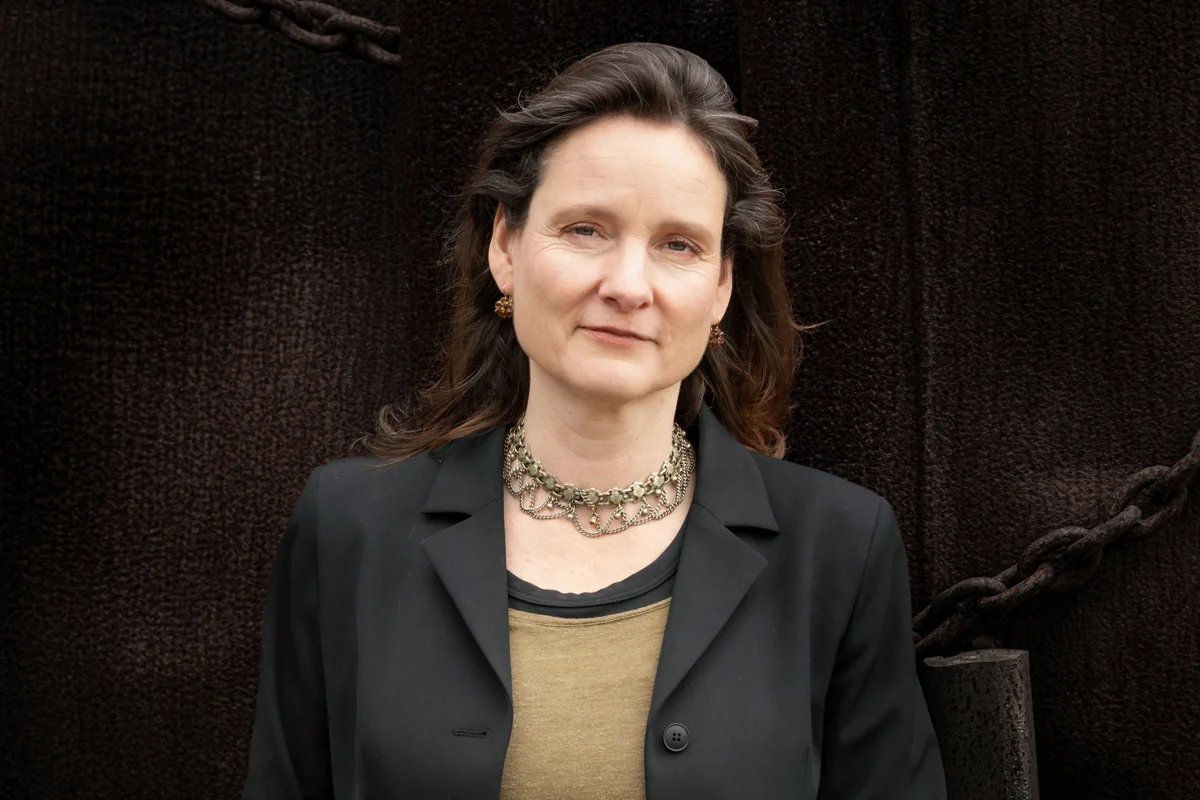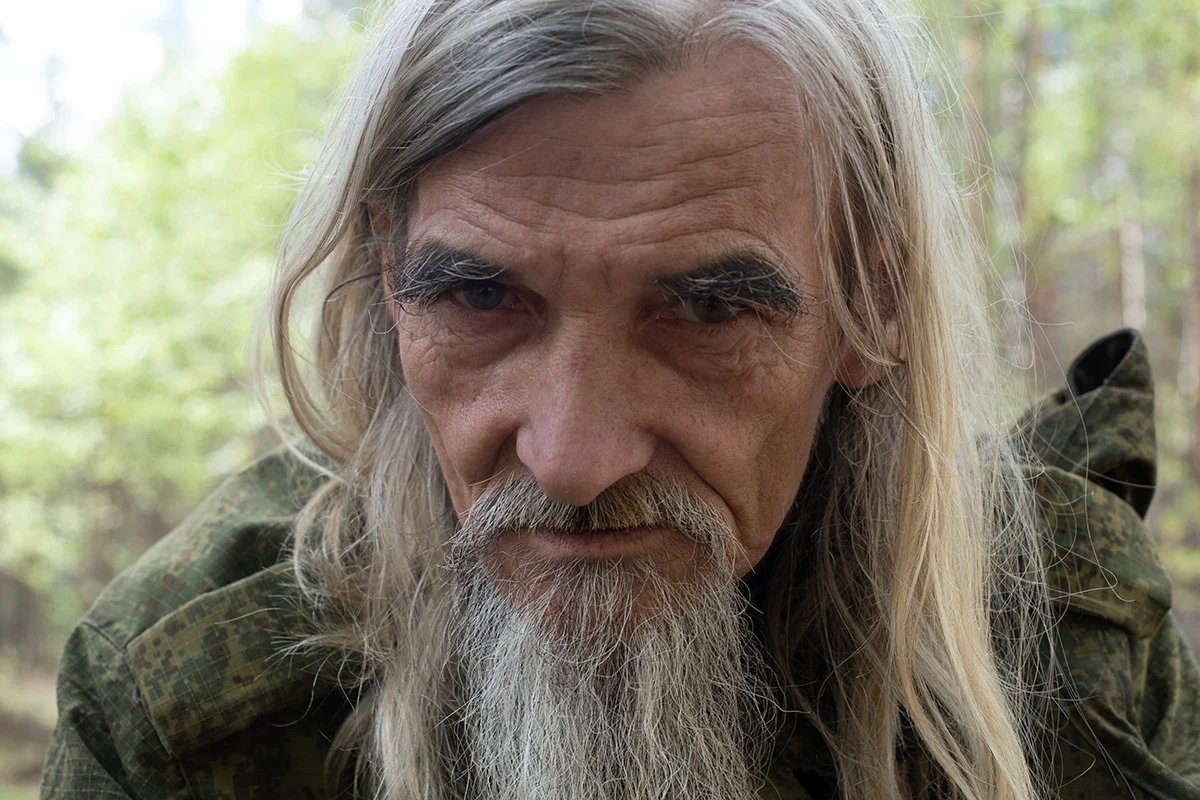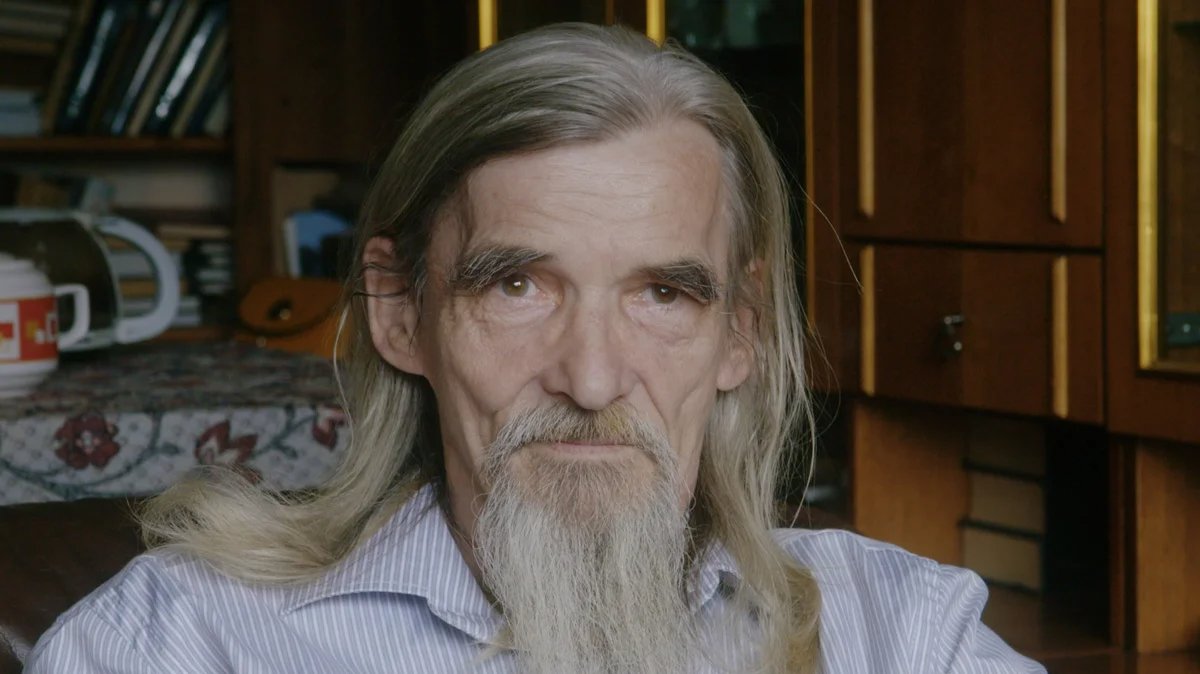Dutch director Jessica Gorter has a track record of making films that explore the legacy of Russia’s unhealed generational trauma, the devaluation of personal tragedy, and individual resilience in the face of unrelenting propaganda, all of which are facts of life for millions of Russians.
Her new film, The Dmitriev Affair, documents the final months of freedom enjoyed by the historian Yury Dmitriev, who, as head of human rights NGO Memorial in his native Karelia in northern Russia, was responsible for discovering the mass grave where thousands of victims of Stalin’s Great Purge were buried in 1937.
Instead of earning praise for the years of work that led to his his momentous discovery, Dmitriev, long a thorn in the side of the Russian authorities, was arrested and charged with taking inappropriate photographs of his daughter, ultimately being sentenced to 15 years in a penal colony, in a trial that set the tone for the Kremlin’s now common weaponisation of the judiciary to terrorise its enemies.
Despite her earlier films tackling issues as sensitive as why so many Russians continue to lionise Stalin (The Red Soul) and how Soviet propaganda about the Nazi siege of Leningrad continues to dominate how the blockade is remembered today (900 Days), her latest film, The Dmitriev Affair, might be Gorter’s most tragic yet.
Portraying a man of infinite dignity who remains unafraid and undaunted even in confinement, The Dmitriev Affair, also profiles a modern Russian state in which inconvenient questions about the past will no longer be answered, and where even daring to ask them can have disastrous consequences.
Ksenia Gapchenko asked Jessica Gorter what made her decide to tell Dmirtriev’s story and how she managed to capture his final months at liberty.
KG: How did Yury Dmitriev’s story get your attention and what was your first impulse to tell his story?
JG: I’ve been making films in Russia since the beginning of the nineties. My previous film investigated why Russia is still so divided over the legacy of Stalin more than 50 years after his death. Surely the violence that took place under Stalin, in which hardly any family escaped the killings, must have left deep marks on successive generations? I wondered why it didn’t seem to be an issue for most people in today’s Russia, and why, at the same time, Stalinism seemed to be on the rise again, and not only among the older generation. While I was working on that film, several people advised me to get in touch with Yury Dmitriev as he was literally digging up the dark secrets from the Stalinist past.
In May 2016, I took my crew to film him. My cameraman and I were immediately taken by him — Yury was walking through the forest with his long beard and his sheep dog. We were really blown away by the work he was doing. I had been working in Russia for the past 20 years and had seen how the process of reconciliation with the past had made a start in the nineties when it became possible to talk and write about the Gulag and the other atrocities that had occurred under communism. But then slowly everything came to a halt and even turned in the opposite direction. So against all odds, Yury searched for the mass graves of those who were secretly murdered during the Great Purge, in order for surviving relatives to finally know what happened to their loved ones. By doing so, he helped people to reconcile with the past. He firmly believes the country needs to confront its collective trauma in order to create a better society.
We filmed much more in 2016 than we needed. I felt a sense of urgency. While travelling around the country I felt Russia had become more closed, but I didn’t suspect things would deteriorate as quickly as they did. Yury was much more pessimistic though, and clearly foresaw what was coming.

Director Jessica Gorter. Photo: André Bakker
KG: When did you realise that you needed to make a film about him?
JG: The moment I got the phone call informing me of his arrest. An anonymous complaint led to him being charged with taking pornographic photographs of his daughter. He was acquitted on all charges at first. State media reporting was pitted against him — it felt like his guilt was a foregone conclusion and the case didn’t require further investigation. The human rights organisation Memorial where Yury worked was presented as one supported by foreign money that discredits Russia’s people and history. And Dmitriev was labelled a paedophile, despite being acquitted of all charges at his first trial.
KG: You had an amazing chance to sneak into Dmitriev’s life, I was really amazed by that.
JG: We connected instantly. We spent a week with my crew in May 2016 at Yury’s place. Afterwards, we kept in contact on Skype. Then he got arrested. A year later, Yury was released on probation and was able to stay at home until the verdict. I realised that I needed to go there — as the prosecutor demanded nine years in a strict-regime penal colony, it might well be the last week Yury would be at home.

A shot from Jessica Gortman’s film “The Dmitriev Affair”.
I went on my own with just my camera. I spent almost a week at his house before the verdict and met and filmed a community of people supporting him at that time, I mean. That week I also met a local journalist making video reports for independent media about the Dmitriev case. I noticed he had a good eye, he was good with people and he was close to the family.
At the end of the week, to everyone’s astonishment, Yury was acquitted. But it wasn’t long before a new accusation was made and he was back in jail again. It was then that I started thinking of filming more with his family. But then COVID came and I couldn’t come back. Also the political situation became more tense every day. So I decided to call that journalist and ask him to continue shooting with the family. And he agreed. My cameraman and I started training him over the phone. We gave him a quick course in directing and filming. It took a lot of time, but he was a quick learner and a smart guy. He did an incredible job.
KG: It must have been quite difficult to make this film while your protagonist is in prison. How was the editing process?
JG: In my previous films I could control what I wanted to shoot much more. And I couldn’t do that here, so I had to make do with what I had. I worked with Katharina Wartena as editor — she’s a master in telling complex stories in a sober way. I knew we had such different material and a complex story, with so many different storylines. And for me as a filmmaker, I’m really not so interested in just showing the actual story, I really wanted through this mini-cosmos to show the bigger picture: what it's like for people to fight from the inside in Russia. How Russia’s unresolved violent past influences what is happening today. To complete the story, I asked Yury’s best friend to read some of his letters from jail. And that’s how things came together.
KG: Did making this film force you to reconsider your connection to Russia?
JG: It might sound strange, but making this film has protected me a little bit. That’s how I feel. When the war broke out, my first feeling was needing to do something, it was so horrendous. So working on the film has helped me. And now that the film is finished … I have to come to terms with my relationship to Russia. The loss. I don’t know, I find it hard to talk about it. Only now that the film is finished do I have some space in my head to really think about it, and it’s confusing and painful. But of course my pain is absolutely nothing, compared to what the people in Ukraine are experiencing.
The Dmitriev Affair will be screened in New York on November 12 as part of the DOC NYC Film Festival.
Join us in rebuilding Novaya Gazeta Europe
The Russian government has banned independent media. We were forced to leave our country in order to keep doing our job, telling our readers about what is going on Russia, Ukraine and Europe.
We will continue fighting against warfare and dictatorship. We believe that freedom of speech is the most efficient antidote against tyranny. Support us financially to help us fight for peace and freedom.
By clicking the Support button, you agree to the processing of your personal data.
To cancel a regular donation, please write to [email protected]

